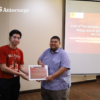On 25 July 2018, the Indonesian Financial Services Authority (Otoritas Jasa Keuangan or “OJK“) issued OJK Rule No. 9/POJK.04/2018 on Takeover of Public Companies (“New Rule“). This New Rule revokes and replaces Bapepam-LK Rule No. IX.H.1 regarding Takeover of Public Companies. The New Rule became effective on 27 July 2018.
Implication for New Controllers
A change of control arising from a direct or an indirect takeover of a public company must be followed by a mandatory tender offer (“MTO“) unless the takeover falls under certain exemptions as stipulated in the New Rule. MTO is an offer that must be made by a new controller to purchase the remaining shares of the target public company.
The New Rule now provides document examples as basis for determining an effective control over the management in a public company. One of them is a document under which a party can control the majority votes in BOD and BOC meetings.
OJK also allows the new controller to appoint another party to conduct the MTO if the new controller directly or indirectly owns more than 50% of the shares of that appointed party. The New Rule does not provide other forms of control or affiliation, such as an effective control over the management or policymaking in that appointed party.
If the new controller owns more than 80% of the shares after the MTO is carried out, the new controller must transfer a certain portion of its shares back to the market until at least 20% of the shares of target public company are owned by public within 2 years. Caution should be applied when doing this transaction as OJK clarifies the term “public” refers to parties that are not in affiliation with the new controller in accordance with the concept of affiliation as set out in Law No. 8 of 1995 on Capital Markets, except employees of the new controller.
Changes in MTO Exemptions
One of interesting features in the New Rule is that OJK limits the exemption of MTO in a rights issue transaction. Only a shareholder, that exercises his pre-emptive rights in proportion to his shareholding and becomes the new controller, can enjoy the MTO exemption. This particular change will not be beneficial in a backdoor listing situation because now the MTO applies to a new investor that obtains control by way of buying pre-emptive rights from majority shareholders of the target public company.
The change of controller as a result of capital increase without pre-emptive rights is also exempted to fulfill the MTO provided that the capital increase is for improving a public company’s financial condition, such as a debt restructuring.
In addition, OJK exempts a new controller from the MTO if an acquisition of control has been disclosed in the prospectus of a public company for a public offering of equity securities. This acquisition must be done within one year after the effective statement of the offering from OJK.
Sanctions for Non-compliance
The New Rule details the administrative sanctions which OJK can impose on parties that violate (including cause the violation of) the New Rule, which are:
- written warning;
- fines;
- limitation of business activities;
- suspension of business activities;
- revocation of business license;
- cancellation of approvals; and/or
- cancellation of registrations.
Our Corporate and Securities Practice Group
We act as strategic partners for our clients advising on a full range of corporate needs strategizing on corporate growth plans and subsequent need to access the capital markets. Our lawyers handle all aspects of securities offerings, from due diligence to drafting of the required disclosure documents to be filed with the capital market authority and stock exchange, preparing related agreements as well as providing day-to-day assistance to our clients, including counsel on broker-dealer compliance and corporate governance.





